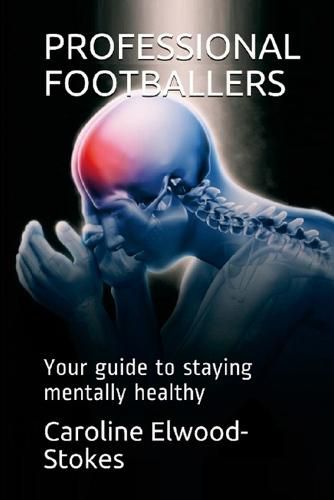Readings Newsletter
Become a Readings Member to make your shopping experience even easier.
Sign in or sign up for free!
You’re not far away from qualifying for FREE standard shipping within Australia
You’ve qualified for FREE standard shipping within Australia
The cart is loading…






This title is printed to order. This book may have been self-published. If so, we cannot guarantee the quality of the content. In the main most books will have gone through the editing process however some may not. We therefore suggest that you be aware of this before ordering this book. If in doubt check either the author or publisher’s details as we are unable to accept any returns unless they are faulty. Please contact us if you have any questions.
The evidence linking physical activity with enhanced mental health and wellbeing is now well described. The Royal College of Psychiatrists recognise exercise prescription as a treatment modality for a wide range of mental health conditions. Despite this progress, there is still a stigma that surrounds people suffering with mental health conditions, which can act as a barrier to physical activity and participation in sport. Mental health problems are common and account for the largest single source of disability (23%) in the UK. 1. The UK government has defined well-being as 'a positive physical and social and mental state' (Department of Health, 2010). Mental well-being includes factors such as individuals' ability to develop their potential, work productively and creatively, build strong and positive relationships with others and contribute to their community'. It also involves areas of life such as feelings of satisfaction, optimism and self-esteem. One way to enhance our mental well-being and protect our mental health is through participating in physical activity. Physical activity has been shown to have a strong and positive influence on mental well-being and some mental illnesses Participation in regular physical activity can increase self-esteem and reduce stress and anxiety. Physical activity can help play a role in preventing mental health problems and improve the quality of life of those experiencing them. 2. Physical activity can be used in treatment for depression and be used as a stand alone treatment or as a combination therapy with medication and/or psychological therapy. Strong evidence exists showing a 20-30% reduction in depression in adults who participate in physical activity daily. Exercise has potential advantages over antidepressants with fewer side effects, and perhaps less stigma attached to it as treatment modality in comparison to counselling or psychotherapy. Limited evidence exists proving physical activity can reduce levels of anxiety and distress in people with mild symptoms by 20-30% and may also be helpful for treating clinical anxiety. Physical activity is available to all, has few costs attached, and is an empowering approach that can support self-management.
$9.00 standard shipping within Australia
FREE standard shipping within Australia for orders over $100.00
Express & International shipping calculated at checkout
This title is printed to order. This book may have been self-published. If so, we cannot guarantee the quality of the content. In the main most books will have gone through the editing process however some may not. We therefore suggest that you be aware of this before ordering this book. If in doubt check either the author or publisher’s details as we are unable to accept any returns unless they are faulty. Please contact us if you have any questions.
The evidence linking physical activity with enhanced mental health and wellbeing is now well described. The Royal College of Psychiatrists recognise exercise prescription as a treatment modality for a wide range of mental health conditions. Despite this progress, there is still a stigma that surrounds people suffering with mental health conditions, which can act as a barrier to physical activity and participation in sport. Mental health problems are common and account for the largest single source of disability (23%) in the UK. 1. The UK government has defined well-being as 'a positive physical and social and mental state' (Department of Health, 2010). Mental well-being includes factors such as individuals' ability to develop their potential, work productively and creatively, build strong and positive relationships with others and contribute to their community'. It also involves areas of life such as feelings of satisfaction, optimism and self-esteem. One way to enhance our mental well-being and protect our mental health is through participating in physical activity. Physical activity has been shown to have a strong and positive influence on mental well-being and some mental illnesses Participation in regular physical activity can increase self-esteem and reduce stress and anxiety. Physical activity can help play a role in preventing mental health problems and improve the quality of life of those experiencing them. 2. Physical activity can be used in treatment for depression and be used as a stand alone treatment or as a combination therapy with medication and/or psychological therapy. Strong evidence exists showing a 20-30% reduction in depression in adults who participate in physical activity daily. Exercise has potential advantages over antidepressants with fewer side effects, and perhaps less stigma attached to it as treatment modality in comparison to counselling or psychotherapy. Limited evidence exists proving physical activity can reduce levels of anxiety and distress in people with mild symptoms by 20-30% and may also be helpful for treating clinical anxiety. Physical activity is available to all, has few costs attached, and is an empowering approach that can support self-management.